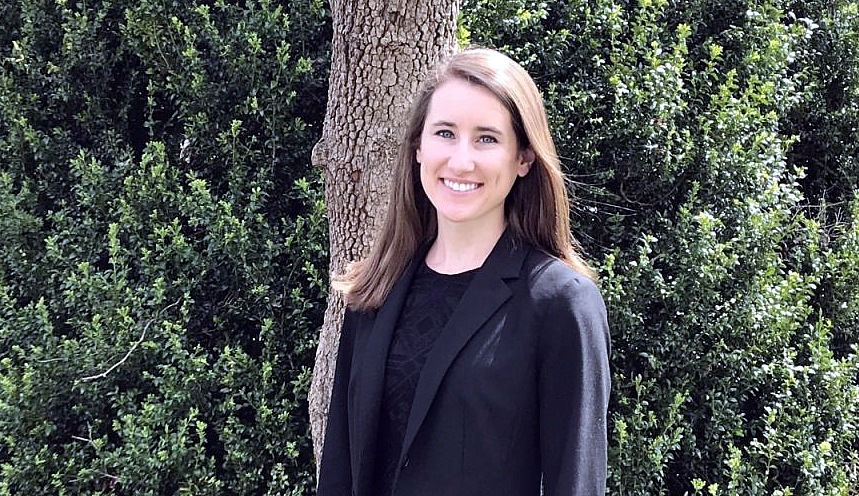
Career Paths: Kim Blasey ’20L
Kim Blasey ’20 is from Kensington, Maryland, and she earned her bachelor’s degree from the University of North Carolina at Chapel Hill. At W&L, she has served as an upper board editor for Law Review, a research assistant to Professor J.D. King, and an extern for the U.S. Attorney’s Office.
Where will you be working after graduation and in what practice area?
Next year, I will be clerking for Judge Kevin G. Hessler in the Montgomery County, Maryland Circuit Court on his civil docket. The following year, I will be clerking for Chief Judge William P. Johnson in the United States District Court for the District of New Mexico.
Did you know coming into law school that you wanted to clerk?
No, I had no idea that I would end up clerking. In college, I interned in a human trafficking unit of the FBI and then applied to law school with the goal of becoming either an FBI agent or a prosecutor specializing in human trafficking. Throughout law school, I learned that clerkships were incredible opportunities that open so many doors for any career path. No matter what your end career goal is, clerking will help you get there.
Was there anything in your law school or summer job experience that confirmed this career choice?
During my 1L summer, I interned for Judge Richard J. Leon who strongly encouraged all of us to clerk. In his courtroom, I was also able to see a wide variety of cases and meet lawyers who had jobs that I had never thought about before. Clerking was appealing to me; I could spend two years learning about different aspects of the legal system and pursue the jobs that best fit my passions afterward. Additionally, many professors at Washington and Lee spoke highly of their own clerkship experiences. More than once, I heard a professor remark that clerking was the best experience of his/her entire career and that it makes you more marketable for any job because of the skillsets you develop.
What classes do you think are helpful to prepare for this job?
Any legal writing-intensive class or law journal would be immensely helpful for any clerkship. As for doctrinal classes, the most valuable varies from clerkship to clerkship depending on the judge’s docket. In general, a class like Sentencing would be useful for a federal clerkship due the class’s emphasis on the U.S. Sentencing Guidelines. For state court clerkships, both Criminal Procedure classes would likely be worthwhile.
Can you describe the job search process?
For state court clerkships, you typically apply by sending hard copies of your resume, cover letter, etc. in the mail. For federal clerkships, you can also apply by sending your materials in the mail, which I think is the more successful way of applying. Alternatively, you can use OSCAR, which is an online application system. Personally, I think it shows a stronger interest in the clerkship if you go the extra step to mail in your applications and I think many judges feel that those applications tend to be more personalized.
What are you most looking forward to about this job?
I am most looking forward to working closely with two judges and seeing how their minds work. Being able to understand how these judges view different litigation techniques and legal arguments will be helpful for my future career in litigation.
